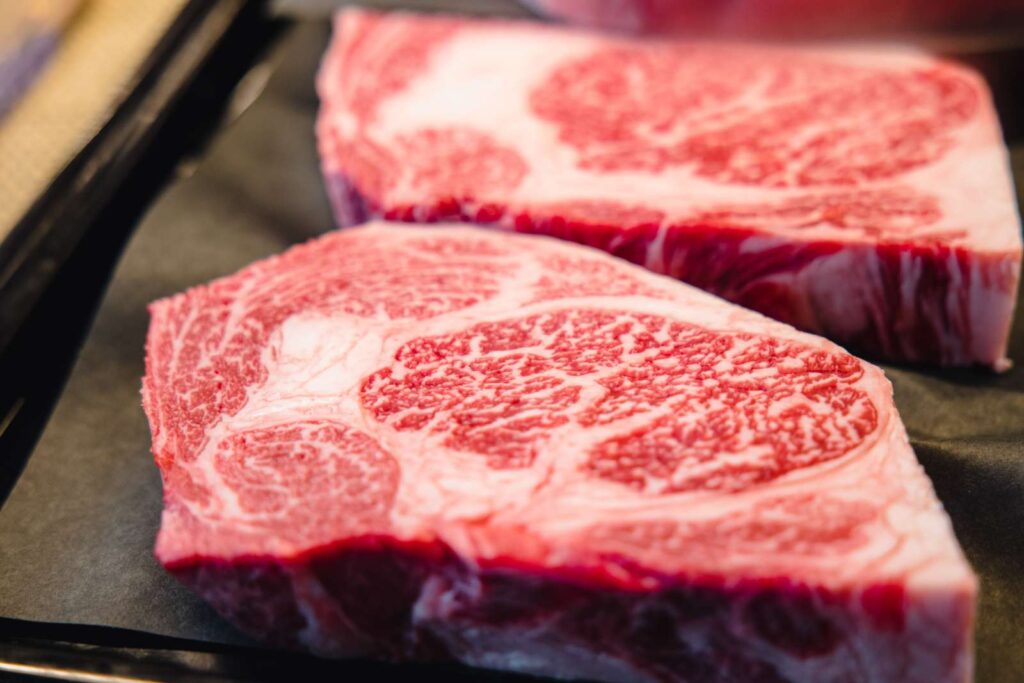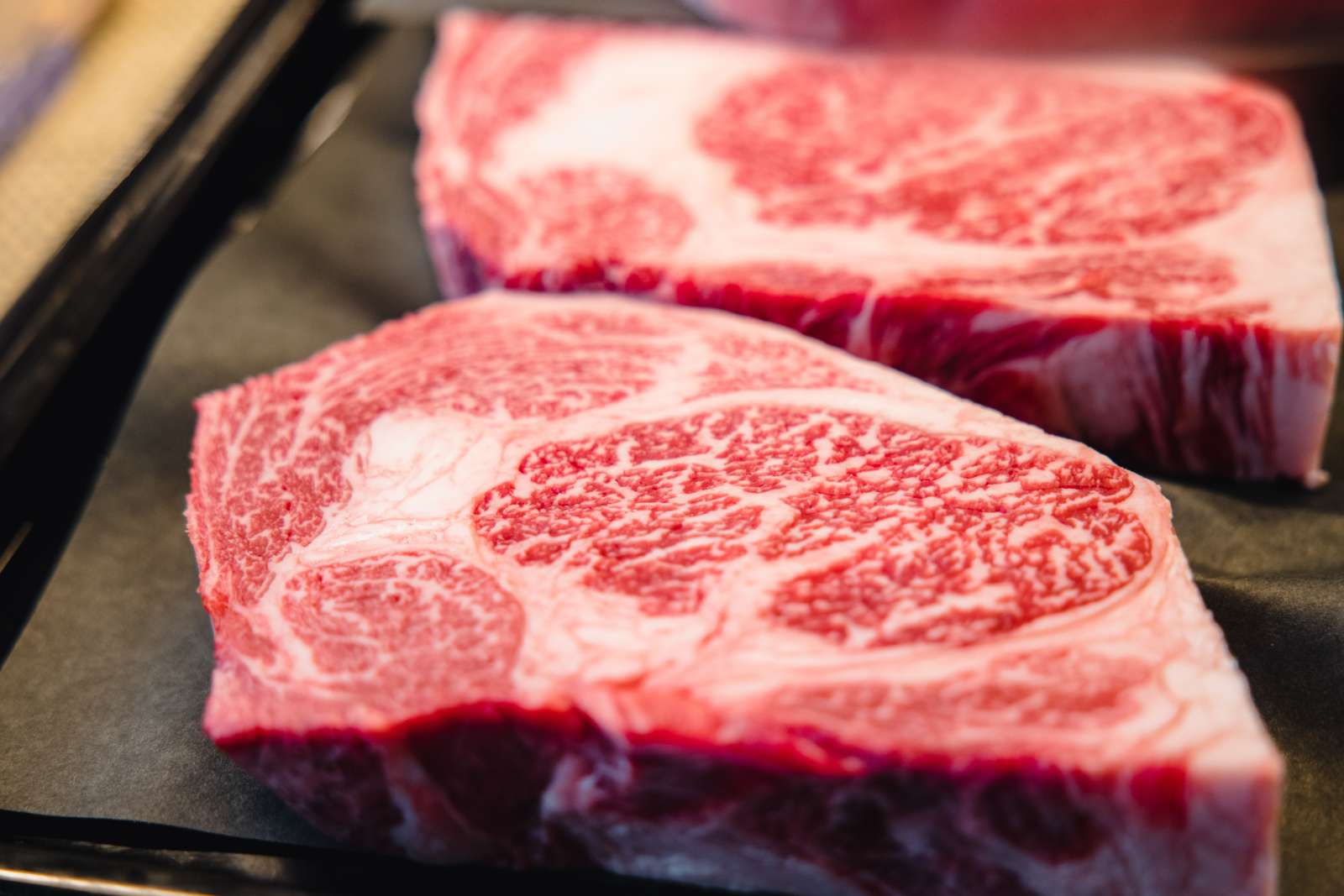How I Stopped Fearing Fat and Embraced It for My Health
They say, “eat a low-fat diet, stay away from red meat, eat vegetable oils” — but my health got worse. When I did the exact opposite, everything got better.
- Eat a low-fat diet.
- Stay away from saturated fat from animal meat, especially red meat.
- Focus on eating “heart-healthy” oils from vegetables.
- Eating fat will make you fat, or even worse, kill you by raising your LDL cholesterol, “the bad cholesterol.”
Have you heard these dire words of warning before?
These words may sound familiar to you. They are certainly familiar to me. I heard them for most of my adult life from doctors, the media, even the government. Even now, these words are still a part of the conventional medical guidance espoused by doctors, media, and the government.
They are a part of the American Heart Association’s (AHA) 2021 guidelines for heart health, which include stating that Americans over the age of 2 years should focus on eating more grains, fruit and vegetables and focus on eating non-fat or low-fat dairy and lean meats and eating liquid vegetable oils instead of solid animal fats. However, even within the AHA’s own guidelines, there is contradictory and confusing information for the reader.
They state that eating less fat and animal fat will reduce LDL cholesterol and is important for heart health. However, they also state that low HDL and high triglycerides are better indicators of cardiovascular disease (CVD) risk, and they list low-fat diets as being one of the major dietary factors that negatively affect both those lipid factors.
The AHA also recommends that Americans reduce the amount of inflammatory Omega 6 oils that they consume to reduce CVD risk but then also promote consuming those same oils instead of animal fats. The advice is confusing at best and damaging to the health of millions of people at its worst. So, when the information provided by the “experts” is contradictory and confusing, what do you do to stay healthy?
- Is fat dangerous?
- Will eating saturated fat really kill me?
- Is eating fat the reason that I am metabolically sick and unhealthy?
- Is low-fat the real way to optimal health?
I asked myself these questions a lot over the past 20 years or more. It wasn’t until I really started doing the research on my own in the last 2 years that I’ve been able to find the right path for myself and clarity about the myths that the conventional wisdom of nutrition has pushed for decades. The first step towards ending confusion is education, so with that, let’s talk about fat and what it really is and what it really does in your body.

What is fat? Really?
Fats, or fatty acids, are one of the three macronutrients that people consume on a regular basis. It’s one of two macronutrients that the body uses for energy, with carbohydrates being the other. When fat is consumed it does one of two things, it gets sent to the muscles for energy use or sent to fat cells for storage, at least that’s what happens in a metabolically healthy body.
When a body is metabolically unhealthy and there is no more room within the adipose cells (fat cells) to hold fat, that fat then gets shuttled to places in the body for storage that was never designed to hold fat, such as internal organs like the liver, heart, or pancreas.
The body then holds that fat until it is needed for energy within the body. For someone that primarily burns fat for fuel, that fat is released from the adipose cells in the form of free fatty acids that are then burned by the body to fuel all its systems and muscles. For someone that primarily burns carbs for fuel, the fat remains in the adipose tissue until the body runs out of carbohydrates to burn.
The human body can hold about 1500-2000 calories worth of carbohydrates as fuel so for some people, very little of the fat they eat and then store is ever released for fuel because the body has an abundance of carbohydrate energy stored for the energy that they are expending.
Why do we even need to eat fat at all? Isn’t it just bad for us?
This was something that I truly believed for the majority of my adult life, and it’s something that is perpetuated by the conventional wisdom and advice of doctors and the government, especially when you continue to see the advice given of “focus on low-fat…”
The truth is you cannot live without consuming fat. For our bodies to work appropriately, we need at a minimum of 30-60 grams of fat daily. We must consume certain types of fat to live, these are called essential fatty acids. These essential fatty acids are Omega 3 and Omega 6 fatty acids, specifically DHA, EPA, and ALA. ALA converts into DHA and EPA.
Both DHA and EPA can be directly consumed by eating fatty fish and seafood. The body needs about a 2:1 ratio of Omega 6: Omega 3 fatty acid intake to get what it needs to function appropriately. The human brain is 65% fat and 50% of that is comprised of DHA.
So, fat is critically important to the human body.
Not only is the brain almost 2/3 fat, but every single hormone in the body is also created by fat, specifically cholesterol. Every cell has a lipid, or fat, layer surrounding it, and your bones are covered in a protective sheath created by saturated fat. Cholesterol, which is fat, is so critical to the function of the body that no matter what you eat, your body will make the cholesterol that it feels that it needs in the liver.
Testosterone, estrogen, insulin, vitamin D3, melatonin, cortisol, and every other hormone that you can think of are created by cholesterol. Cholesterol also creates insulin receptors on every cell in the body, so the less cholesterol that you have, there is an increased risk of insulin resistance.
Fat, specifically cholesterol, has a primary role in the immune system as well, fighting any inflammatory response within the body. CoQ10 is built from cholesterol and is a part of the transport chain within our mitochondria that allows for the creation of ATP, or energy, to fuel our cells. Eating fat is critical to our health and ensuring that we are eating the right fat is even more important.
What types of fat are there and isn’t saturated fat the worst fat of them all?
So, the fat we consume comes in many forms and for a long time, I too believed that I needed to avoid saturated fat like the plague. As it turns out, I have familial hypercholesterolemia, or put simply, genetically high cholesterol, especially LDL cholesterol.
Every doctor that I’ve seen has told me to eat less fat, especially saturated fat because it would raise my LDL and that would increase my risk of dying from a heart attack or some other cardiovascular incident.
I was certain that what they were telling me was right, why wouldn’t I believe them, they were doctors. Turns out, after a couple of years of doing my own research, I learned that your average general practitioner only receives a single credit hour on nutrition and it’s mostly focused on what the RDAs are as handed down from the government, which is unfortunate.
Many, unless they focused on lipidology or even the metabolic impact of lipidology, don’t really know the impact of LDL cholesterol on the body or what the other, more important, lipid factors are when it comes to overall health.
There are a lot of different kinds of fat, including saturated fat, which is the most vilified of the fats. Polyunsaturated fats, which are what the AHA refers to as the “heart-healthy” fats and the ones that they recommend people consume – soybean oils, corn oil, flaxseed oil, safflower oil, canola oil, cottonseed oil, and the like.
And then there are monounsaturated fats, which are found in high proportions in olive oil and avocado oil. As it turns out, saturated fat is very neutral in its overall impact on cardiovascular health, they are non-inflammatory and, in many ways, helps with reducing overall inflammation in the body when consumed.
Three studies from 2021 all show no link between all-cause mortality or increased risk of heart disease from consumption of saturated fat. In this study, it was concluded that women who consumed saturated fat showed no increases in the risk of CVD incidents or death and actually showed a lower risk of obesity, type 2 diabetes, and high blood pressure.
Monounsaturated fats and saturated fats improve overall HDL cholesterol and triglyceride levels which are better markers of cardiovascular risk than LDL cholesterol levels. However, there have been numerous studies on the overall negative impact of consuming what the AHA refers to as “heart-healthy” fats, polyunsaturated fatty acids, specifically Omega 6 fatty acids.
PUFAs degrade and oxidize very easily, especially when heated. When heated, PUFAs tend to form trans-fats which are brand new, not-found-in nature kinds of fatty acids. Most Americans have an Omega 6:Omega 3 ratio of 20:1 whereas in reality, the ratio should be closer to 2:1.
Articles such as this study highlight that ratios of 20:1 or even 50:1 increase the risk of inflammatory diseases within the body such as non-alcoholic fatty liver disease, obesity, type-2 diabetes, and even Alzheimer’s disease. When you look at the data, saturated fat is not the enemy of health, it’s increasing the consumption of industrial seed oils that is the enemy.
So, what’s the truth?
It took me a long time to figure out the truth about fat and I’m still learning things even today. I was afraid to eat fat for a long time, especially given my genetically high cholesterol condition.
As it turns out, having my condition is helpful in living a longer life which is not something that I had ever heard my doctors say to me which was frustrating. High LDL cholesterol, because it is a part of the immune system, helps the body fight infection and as you age, which helps with overall longevity as the immune system decreases as we age.
Eating fat and changing my body from carb-burning to fat-burning for energy, provides benefits for reducing overall body fat, providing steady energy for both my body and my brain especially since the body has a practically unlimited source of energy from fat stores.
Humans are unique in that they enter ketosis, or a fat-burning state for energy, when dietary consumption of carbs drops below 20g per day, nothing else is needed. The brain is adapted to burning ketone bodies for energy and will burn ketones for energy even if the brain starts to reject sugar as an energy source.
Eating fat, especially paired with appropriate protein, is far more satiating than eating primarily carbohydrates and I find that I actually eat a lot less now than I ever did when I was eating a “heart-healthy” diet of fruits, vegetables, and whole grains.
Part of that has to do with the fact that when fat is consumed, it blunts the body’s insulin response which helps control blood sugar spikes and subsequent crashes which in turn impact hormones like ghrelin, the hunger hormone.
God loves fat and meat, and He shows that repeatedly in the Old Testament…
Leviticus 7:3-5
“And all its fat shall be offered, the fat tail, the fat that covers the entrails, the two kidneys with the fat that is on them at the loins, and the long lobe of the liver that he shall remove with the kidneys, The priest shall burn them on the altar as a food offering to the Lord.”
This is the description of what was offered as a guilt offering to the Lord by His people. The next verses talk about how all the males among the priest were to eat of it and eat it in the holiest place.
The Lord intended us to eat both the fat and the meat of animals, especially ruminant animals. And He so highly regarded fat and meat, that it was those two things that were offered up as the burnt offerings for the guilt offering and the sin offering.
Eating fat is critically important to being healthy and healing your body. When the body is metabolically healthy and using fat primarily for energy, fat comes into the cells and then flows back out for energy as fat flux. Eating fat, especially as a part of the animal protein that you are eating, controls satiety, controls the insulin response and therefore blood sugar levels, and heals the body.
There are a lot of factors in improving your health, but consuming fat is important to focus on, especially the fat found in animal protein sources. Eating animal fats instead of pro-inflammatory, “heart-healthy,” industrial seed oils is an important step to take in healing your body from the inside out.

If you want to eat better, get stronger, and lose weight, then let’s talk. Request a call with me now.


Thank you, Lisa! Great information!